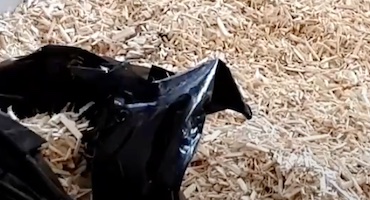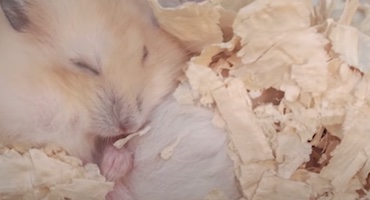Being omnivorous, hamsters may consume a wide range of foods, including insects. In reality, hamsters may get a lot of protein and other essential elements from insects, which may be deficient in their diet. However, it’s crucial to exercise caution and pick secure species when giving insects to your hamster.
Mealworms, crickets, grasshoppers, and waxworms are a few of the insects that hamsters can consume. These insects are frequently offered in dry or live form and may be acquired at pet stores or online. It’s critical to select insects made especially for hamsters and to stay away from those that could have come into contact with hazardous pesticides or other chemicals.
Start with little amounts and progressively increase the amount over time while feeding insects to your hamster. It’s crucial to keep a careful eye on your hamster’s behaviour and health since too many insects might lead to stomach troubles or other health concerns. In addition, you should only give your hamster insects as a complement to their usual meal, not as a replacement.
You may give your hamster insects in a number of different ways, such as by sprinkling them over their normal meal or putting them in a separate dish. While some hamsters might prefer the convenience of dried insects, others might enjoy chasing and catching live insects.
Can Hamsters eat Grasshoppers?
Grasshoppers can be a good source of protein for hamsters, which is an important nutrient that they need to stay healthy. However, it’s important to exercise caution and pick a safe & appropriate species when giving grasshoppers to your hamster.
Make sure the grasshoppers are clean and free of any dangerous pesticides or chemicals before giving them to your hamster. Grasshoppers may also have hard exoskeletons that are challenging for hamsters to digest, which might cause digestive issues or obstructions in the digestive tract. Because of this, it is advised to only provide grasshoppers occasionally and in moderation.
Conclusion
Overall, giving your hamster insects to eat may be a wonderful way to give them a nice and nutritious treat. However, it’s crucial to do so in moderation and to pick species that are appropriate and safe. It is always better to speak to a veterinarian or pet nutritionist if you have any concerns about feeding insects to your hamster.
Share
Related Posts
Hamsters love to chew on all kinds of foods, however, as a caring pet owner, you should always [...]
Popcorn is a snack that many people enjoy. It is common in movie theatres, and it also can [...]
When it comes to feeding your little hamsters, there are a variety of foods which are safe for [...]




